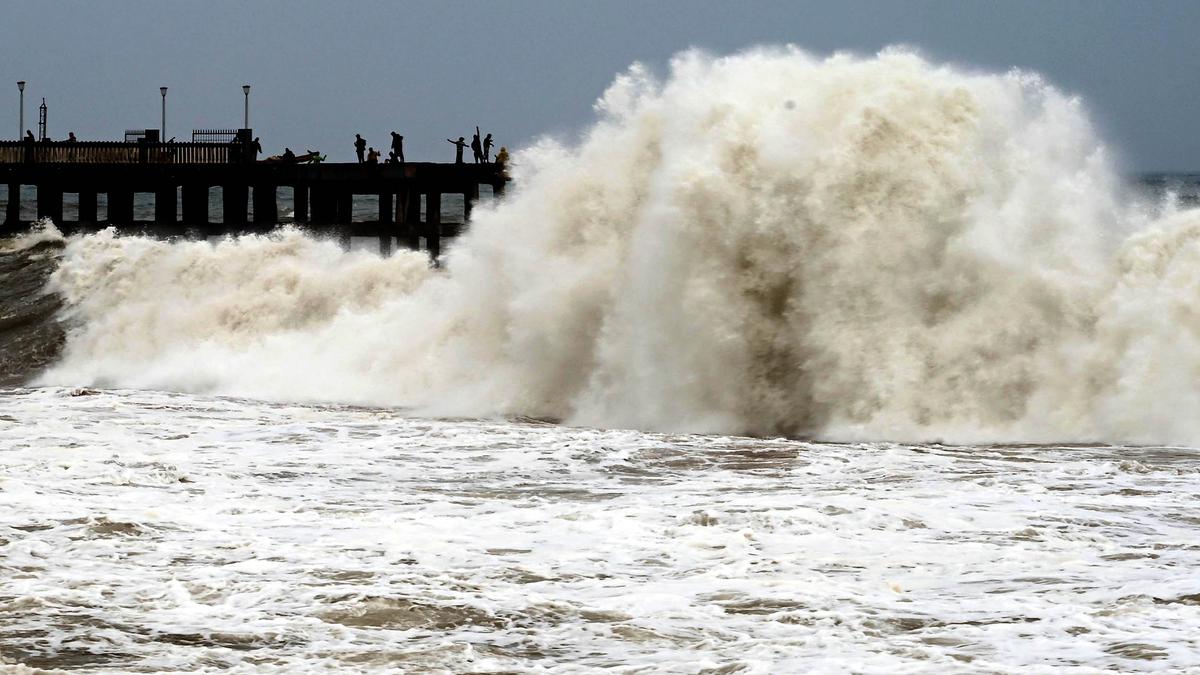
Tropical cyclones are intensifying more rapidly and frequently: INCOIS study
The Hindu
Global warming leads to more powerful cyclones, with a growing number of cyclones experiencing multiple rapid intensification. This poses significant challenges to forecasting and can occur even in mature stages. Researchers found a surge in frequency of multiple rapid intensifications, with western north Pacific Ocean basin contributing most. To understand climate changes and factors behind rapid intensification, further studies are needed. Improved forecasting and preparedness is needed to protect coastal communities and infrastructure.
A growing number of cyclones are experiencing multiple rapid intensification globally where a tropical cyclone intensifies dramatically in a short period like an increase in the cyclone’s intensity of 30 knots speed or more in 24 hours and this poses significant challenges to cyclone forecasting, said scientists of the Indian National Centre for Ocean Information Services (INCOIS).
In the latest study conducted in collaboration with researchers from Department of Meteorology and Oceanography, College of Science and Technology, Andhra University, Visakhapatnam, the scientists have deduced that global warming has heightened cyclone intensity, multiple rapid intensifications leading to unpredictability of cyclone behaviour.
“We have observed that tropical cyclones are intensifying rapidly and frequently. We also found changes in their lifecycles. Previously, this rapid intensification used to occur during initial stages of cyclones’ life, but now, with ocean warming, it is occurring even in the mature stages,” explained first author and INCOIS scientist N. D. Manikanta.
The team saw a significant surge in the frequency of multiple rapid intensifications across all ocean basins with western north Pacific Ocean basin contributing to nearly half of the total occurrences and the north Indian Ocean basin having a comparatively low rate.
“Increased number of multiple rapid intensification tropical cyclones in the past 20 years warrant improvement of existing numerical models. We hope to improve our understanding using new observational strategies such as drones and developing AI-based techniques for reducing uncertainties,” said INCOIS head of the Applied Research and Research to Operations (ARO) Sudheer Joseph, also the corresponding author.
Scientists said examining the variations in the intensification rates across time and at different stages of cyclone evolution will help understand correctly when such events occur. Warming of the surface ocean from anthropogenic climate change is fuelling more powerful tropical cyclones, more studies are needed to draw a relationship between the recent climate changes and factors behind rapid intensification of these cyclones, they said.
The team had used publicly available tropical cyclone data — recent and historical — from multiple agencies to create a unified, publicly available dataset including from the National Hurricane Center (for the North Atlantic and eastern-north Pacific basins) and data from the Joint Typhoon Warning Center (for the remaining ocean basins) and analysed 40-year (1981 to 2020) tropical cyclone intensity changes across all global ocean basins.

 Run 3 Space | Play Space Running Game
Run 3 Space | Play Space Running Game Traffic Jam 3D | Online Racing Game
Traffic Jam 3D | Online Racing Game Duck Hunt | Play Old Classic Game
Duck Hunt | Play Old Classic Game











